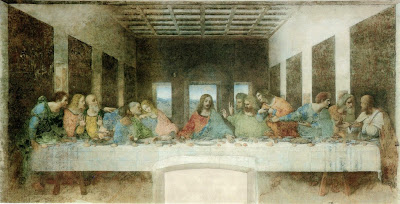 From cheese crackers and Sobe to the Real Presence of the body and blood of Christ; Holy Communion has lived in tension for this believer. Several years ago, without any knowledge of the scriptural backing, I held to a symbolic understanding of the Eucharist. Eventually, this symbolism (technically known as memorialism) got blended with the concept of Sacramental Living (the sacramental doctrine of the Salvation Army). Then, Lutheranism came along and messed with my Sobe and cheese crackers.
From cheese crackers and Sobe to the Real Presence of the body and blood of Christ; Holy Communion has lived in tension for this believer. Several years ago, without any knowledge of the scriptural backing, I held to a symbolic understanding of the Eucharist. Eventually, this symbolism (technically known as memorialism) got blended with the concept of Sacramental Living (the sacramental doctrine of the Salvation Army). Then, Lutheranism came along and messed with my Sobe and cheese crackers.Traditionally, the Real Presence (Luther's philosophy on the Eucharist) holds that the sacrament of the Eucharist is the real body and blood of Jesus Christ. The physical substance of the bread and wine have not changed (that would be the Roman Catholic interpretation known as transubstantiation). Rather, the bread and the wine – when joined with the words of Christ (Matt. 26:26-28) and the Word who is Christ – administer and proclaim the forgiveness of sins.
Arguably, my Sobe and cheese crackers were conjoined with the Real Presence of the body and blood of Jesus Christ; in spite of the fact that this was unknown to me at the time. Furthermore, “If the Word be joined to the element, it becomes a Sacrament” (Augustine). However, I would not advocate the use of Sobe and cheese crackers, unless, it is all one has available. Martin Luther said it best, “No matter whether you are worthy or unworthy, you have here His body and blood by virtue of these words which are added to the bread and wine.”
Until recently, I wasn’t totally sold on the Real Presence – the idea sort of freaked me out. Yet, as I listened to the controversy and chaos that many have experienced with this sacrament; I realized, only the Real Presence of Christ (in the Eucharist) could give us the words to proclaim forgiveness over controversy and absolve its recipients. In turn, it sanctifies those who partake, with “a food of souls,” and redeems this sacrament from the chaos of relativism, legalism, and reductionism. Symbolism and Sacramental Living remember the cross event; meanwhile, the Real Presence partakes in the gifts of the cross event – grace and forgiveness.
Ironically written to the sounds of Kid Rock’s “I am the Bullgod.”



